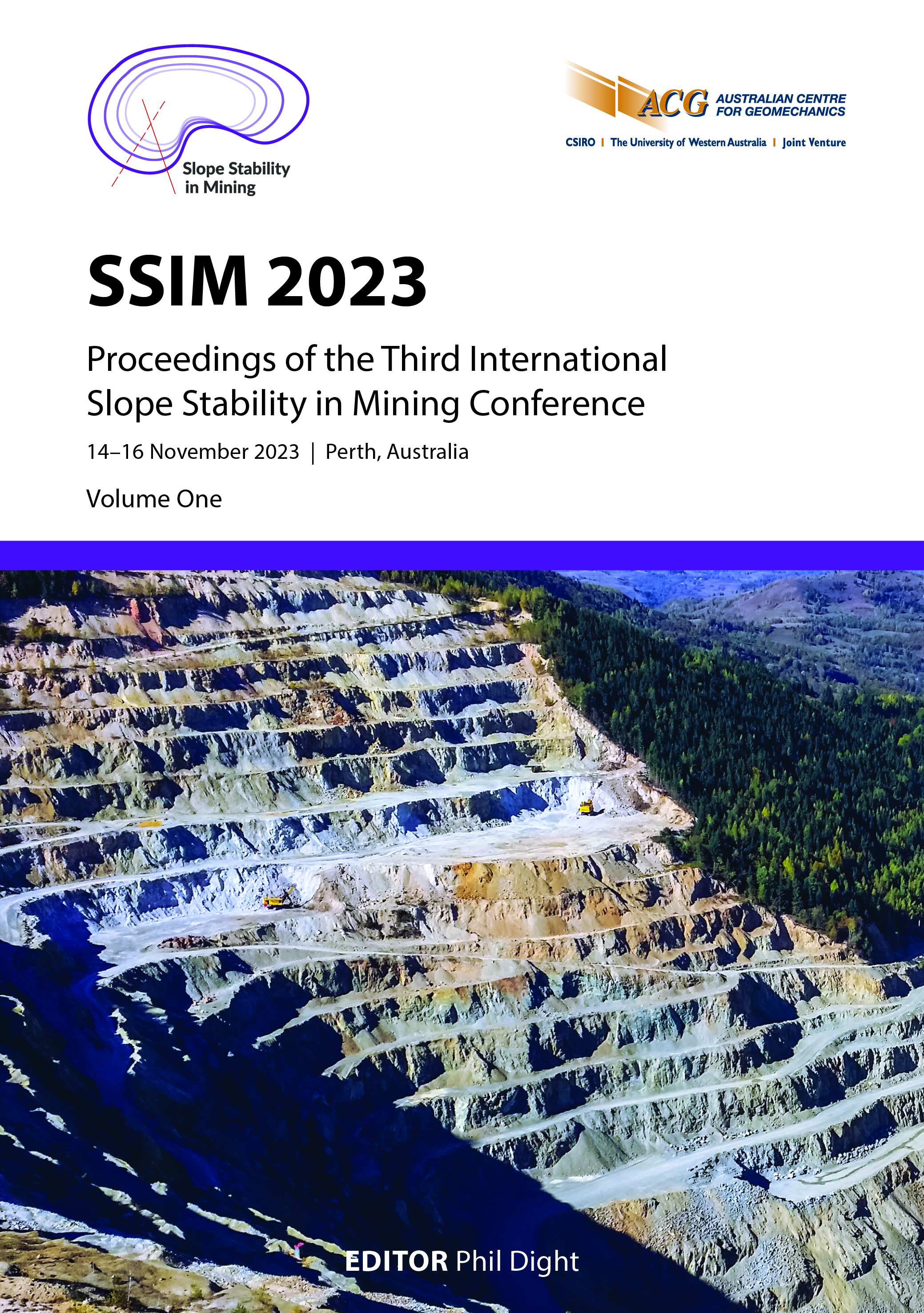The development process of an applied geotechnical model for the Hemerdon deposit

|
Authors: Shellam, R |
DOI https://doi.org/10.36487/ACG_repo/2335_17
Cite As:
Shellam, R 2023, 'The development process of an applied geotechnical model for the Hemerdon deposit ', in PM Dight (ed.), SSIM 2023: Third International Slope Stability in Mining Conference, Australian Centre for Geomechanics, Perth, pp. 303-314, https://doi.org/10.36487/ACG_repo/2335_17
Abstract:
The geotechnical model outlines the current engineering geological understanding of a deposit and provides a rational representation of the rock mass properties observed at the site. The primary purpose is to help inform subsequent slope stability modelling and by incorporating the geotechnical model into the analysis, engineers can evaluate the potential for slope failure and determine the optimal pit design that is safe while maximising efficiency. However, if there are inconsistencies in the geotechnical model the pit designs created may not adequately account for potential risks and as a result, sub-optimal designs will be generated. These inconsistencies can arise from various factors such as insufficient site investigation or limitations in the analysis techniques employed. Therefore, a significant amount of effort is expended to collect and interpret data to justify the model parameters. This paper outlines a methodology to develop the geotechnical model domains. It highlights an iterative approach which combines field observations, 3D models visualisations and the application of data visualisation techniques to justify model boundaries. The proposed method was applied to the development of the geotechnical model for the Hemerdon Mine, a tungsten deposit which is located in the southwest of the UK. It is concluded that by using the techniques presented in this paper, engineers can develop robust geotechnical models which better reflect the rock mass conditions and therefore, improve the outcomes of subsequent slope stability modelling.
Keywords: constructing geotechnical models, case studies, geotechnical characterisation
References:
Barnett, W, Fonseca, A & Siddorn, J 2021, Guidelines for Structural and Geological Models, University of Queensland, St Lucia.
Bieniawski, ZT 1989, Engineering Rock Mass Classifications: A Complete Manual for Engineers and Geologists in Mining, Civil, and Petroleum Engineering, John Wiley & Sons, New York.
de Bruyn, IA 2021, ‘Building useful geotechnical models’, in PM Dight (ed.), SSIM 2021: Second International Slope Stability in Mining, Australian Centre for Geomechanics, Perth, pp. 37–50,
Eggers, MJ 2016, ‘Engineering geological modelling for pit slope design in the porphyry copper-gold deposits of Southeast Asia’, in PM Dight (ed.), APSSIM 2016: Proceedings of the First Asia Pacific Slope Stability in Mining Conference, Australian Centre for Geomechanics, Perth, pp. 49–82,
Read, J & Stacey, P 2009, Guidelines for Open Pit Slope Design, CSIRO Publishing, Collingwood.
Read, JRL 2013, ‘Data gathering, interpretation, reliability and geotechnical models’, in PM Dight (ed.), Slope Stability 2013: Proceedings of the 2013 International Symposium on Slope Stability in Open Pit Mining and Civil Engineering, Australian Centre for Geomechanics, Perth, pp. 81–89,
Tungsten West 2022, Bankable Feasibility Study for the Hemerdon Tungsten-Tin Project, Tungsten West, South Devon.
Vakili, A, Watson, J, Abedian, B & Styles, T 2020, ‘SlopeX: a plug-in to simplify and fast-track advanced numerical modelling for open pit applications’, in PM Dight (ed.), Slope Stability 2020: Proceedings of the 2020 International Symposium on Slope Stability in Open Pit Mining and Civil Engineering, Australian Centre for Geomechanics, Perth, pp. 1047–1058, https://
doi.org/10.36487/ACG_repo/2025_69
Weir, FM, Fowler, MJ, Sullivan, TD, Kobler, M & Bu, J 2020, ‘Evolution of a geotechnical model for slope design in an active volcanic environment’, in PM Dight (ed.), Slope Stability 2020: Proceedings of the 2020 International Symposium on Slope Stability in Open Pit Mining and Civil Engineering, Australian Centre for Geomechanics, Perth, pp. 455–472,
10.36487/ACG_repo/2025_26
© Copyright 2026, Australian Centre for Geomechanics (ACG), The University of Western Australia. All rights reserved.
View copyright/legal information
Please direct any queries or error reports to repository-acg@uwa.edu.au
View copyright/legal information
Please direct any queries or error reports to repository-acg@uwa.edu.au

